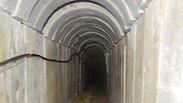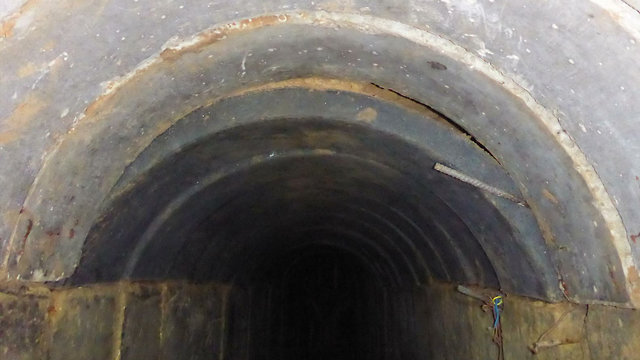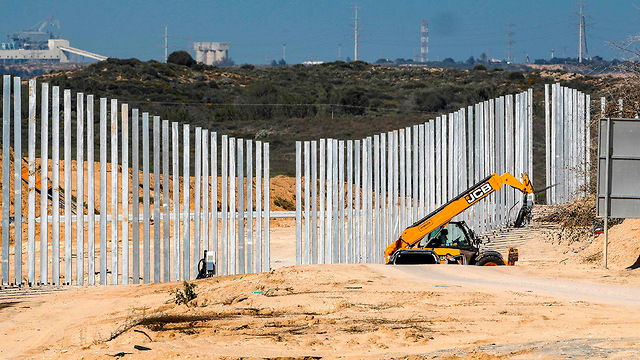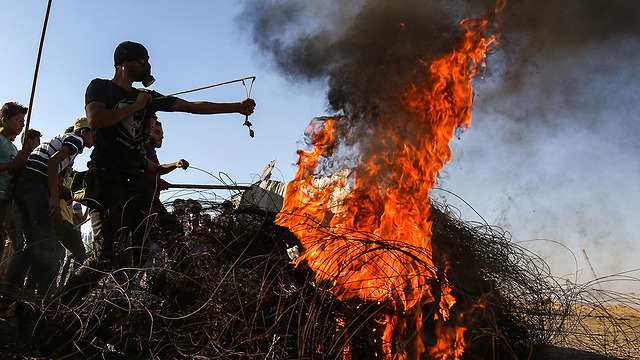
A tunnel dug from the Gaza Strip into Israel has been discovered by Israeli troops, the IDF Spokesperson's Office announced Monday evening.
The tunnel, which originates in the southern Strip, was uncovered on the Israeli side of the border in the last 24 hours during construction of an underground barrier along the Gaza border.
The area has been closed to traffic and the IDF is scanning the tunnel both above and below the surface.
According to pundits, the discovery of the tunnel highlights the need for and capabilities of the new underground barrier along the Gaza-Israel border.
The tunnel was found in an area in which many similar excavations have been discovered over the last 20 years.
At this stage, it appears that this is an old tunnel, not one that was recently excavated or was intended to be used by Hamas in the near future.
"The tunnel does not pose a threat and is being handled by the IDF," said Eshkol Regional Council, a community close to the Gaza border.
"The tunnel was located thanks to groundbreaking technological defenses that are being used along the Gaza border to protect our communities," the council said.
"We thank the IDF soldiers and officers who act resolutely and with courage to defend our communities."
The construction of the subterranean barrier is part of the main task given to the IDF by the political echelon following the 20145 Gaza war, known in Israel as Operation Protective Edge: the elimination of the Hamas attack tunnels that had been dug into Israel.
The Defense Ministry hastened to implement the concrete barrier project, using advanced technology that can identify where tunnels have been dug.
At present, a concrete barrier stretching some 30km (of the planned 70km total length) has been set deep in the ground, alongside the construction of a massive fence along the border.
The project is expected to be completed by the first half of 2020, and has reduced the apprehension of local residents over the tunnels as it has progressed.
The discovery of the tunnel comes shortly after an agreement was reached between Israel and Hamas at the end of June.
Under the agreement, which was signed under the auspices of the United Nations and Egypt, Hamas pledged to stop sending incendiary balloons into Israel and rein in the weekly demonstrations at the border fence.
In return, Israel agreed to allow fuel to reach the Gaza power station through the Kerem Shalom crossing, increased the Gaza fishing area to 15 nautical miles and reportedly committed to return 60 fishing boats confiscated by the IDF.
Matan Tzuri and Elior Levy contributed to this report



















